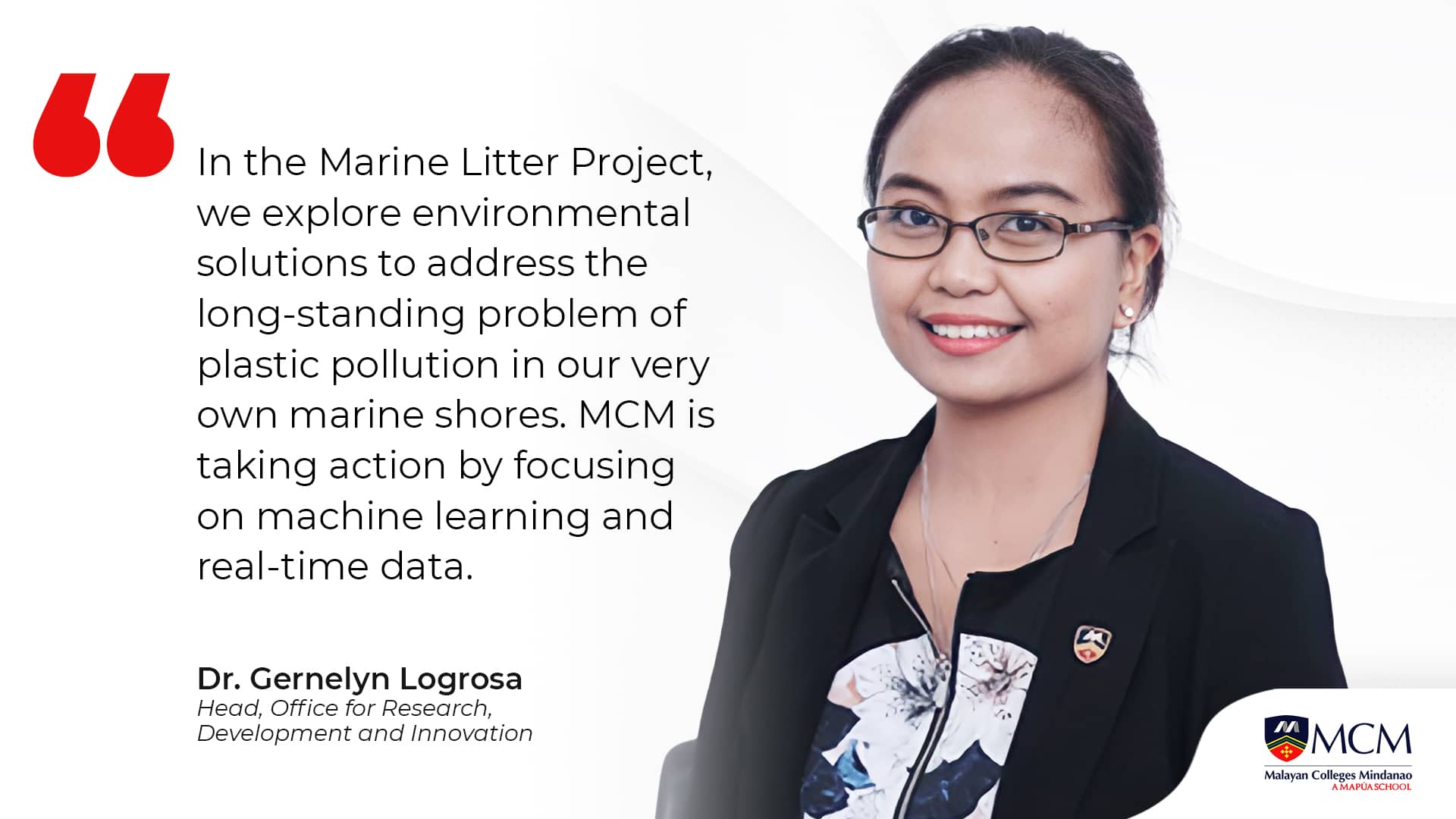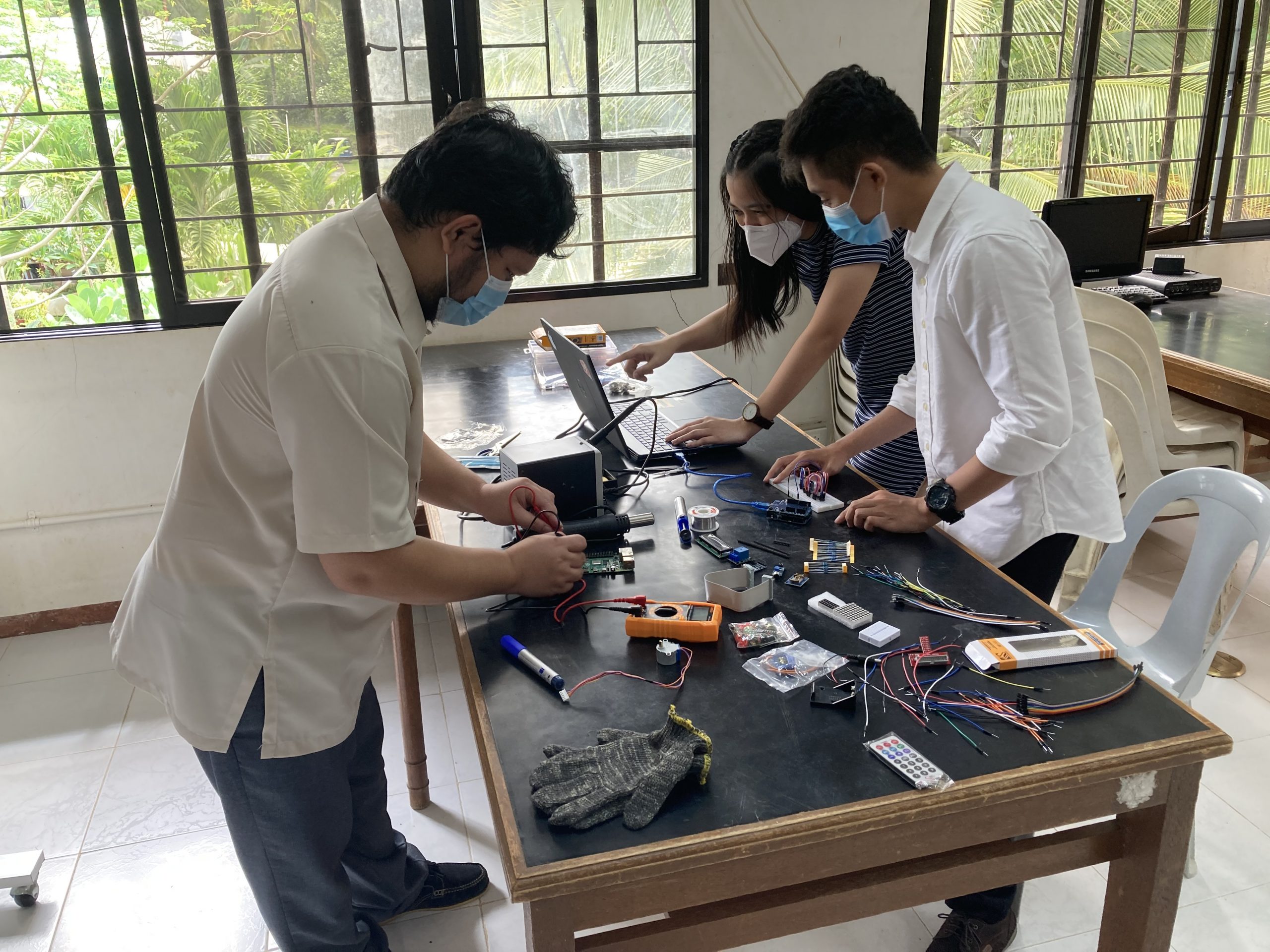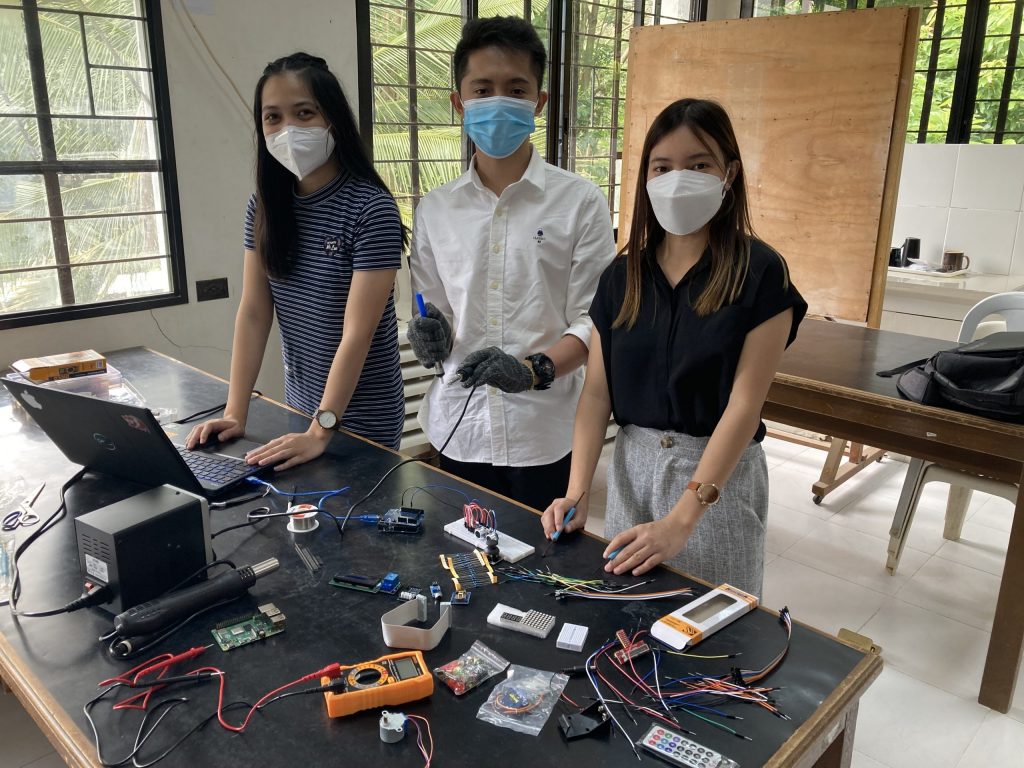The Marine Litter Project Team pose for a picture as they prepare some needed equipment.
Mapúa Malayan Colleges Mindanao, together with the University of Philippines – Mindanao, University of Tokyo, and the Davao Oriental State College of Science and Technology, are working closely for the development of the Marine Litter Project – which is a simple and cost-effective technology to monitor and quantify marine litter in shallow coastal areas.
According to a study by Ellen MacArthur Foundation, the Philippines is the third largest contributor of Anthropogenic Marine Debris (AMD), specifically plastics, at 500,000 tons per year. As one of the world’s worst plastic polluters in the ocean, it is a huge threat to marine biodiversity, food security, and human health.
“Evidence showed that AMD has been negatively affecting marine wildlife in the country. The problem is further compounded because of logistical and funding challenges on conducting such studies related to AMD. The marine litter project aims to address these challenges.” Dr. Vladimer Kobayashi from UP Mindanao stated.
The technology is based on an existing towed opticam camera array system for deep sea monitoring, which will be redesigned and improved by adding sensors and cameras for efficiency in shallow coastal water surveys.

Mapúa Malayan Colleges Mindanao, as a leading institution in the field of engineering, will provide its engineering expertise and Industry 4.0 facilities. Moreover, MapúaMCM will tap its vast network to further the advocacies of the project.
“In the Marine Litter Project, we explore environmental solutions to address the long-standing problem of plastic pollution in our very own marine shores. MapúaMCM is taking action by focusing on machine learning and real-time data.” Dr. Gernelyn Logrosa, Head of the Office for Research, Development and Innovation, shared on MapúaMCM’s efforts in the project.
UP Mindanao will provide its AI expertise to create models for marine litter detection. The algorithms were developed by MapúaMCM, UP Mindanao, and the University of Tokyo. They will also build models that predict future scenarios of marine litter. Davao Oriental State College of Science and Technology, as the leading institution in marine research, will contribute to the analysis of how marine litter affects marine wildlife and its various ramifications to food security, livelihood, and health.

(left) Dr. Vladimer Kobayashi, together with members of The Marine Litter Project, prepare the equipment.
“The project has just started but it has already sealed partnership with various LGUs. It has begun the development of AI models for marine litter detection and is in the process of designing the hardware aspect of the technology.” Dr. Kobayashi stated.
The Marine Litter Project hopes to advocate more marine litter research in the country so that proper responses and innovative solutions will be provided to combat the threats of marine pollution.
“Looking forward, we hope that through this Marine Litter project we can help local fishing communities sustain their livelihood, benefit the local tourism of the area and assist DENR in its policies relating to the protection of our aquatic resources. Through all this, MapúaMCM endeavors to continue its legacy of excellence and relevance here in the region and we’ll keep pushing until we can model this for the whole of Mindanao.” Dr. Logrosa added.
As the project is being established, the Marine Litter Project is looking for more partnerships from Local Government Units (LGUs) or Non-Government Organizations (NGOs) in the utilization and promotion of the technology.


